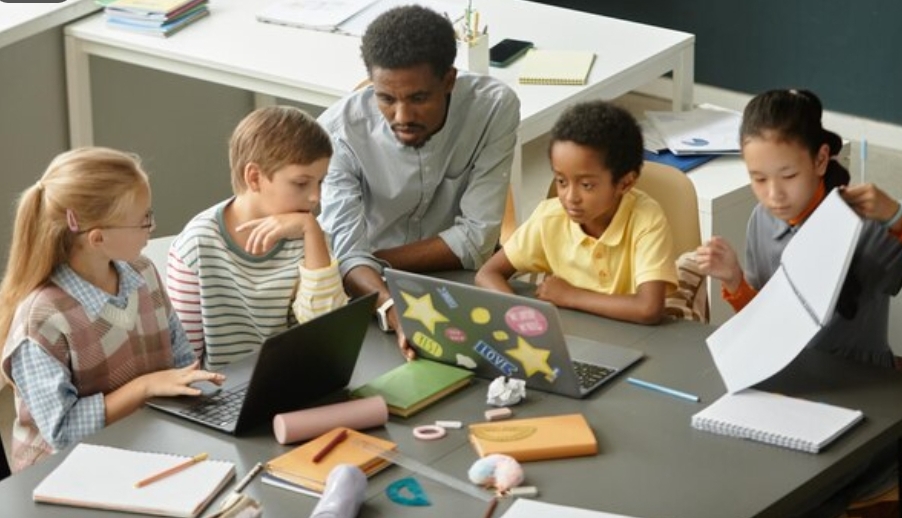
Introduction
In today’s interconnected world, multicultural education plays a crucial role in fostering diversity, inclusion, and global awareness. As the landscape of education continues to evolve, online learning resources have emerged as powerful tools for delivering multicultural education to students of all backgrounds. In this article, we explore the benefits of incorporating multicultural education into online learning resources and how it can enhance the learning experience for students worldwide.
Study Tips and Tricks
One of the key benefits of multicultural education in online learning resources is its ability to provide students with a diverse range of perspectives, experiences, and cultural insights. By exposing students to different cultures, traditions, and worldviews, multicultural education fosters empathy, understanding, and appreciation for diversity, enriching the learning experience and promoting global citizenship.
E-learning Platforms Comparison
Multicultural education can be seamlessly integrated into various e-learning platforms, allowing students to access diverse content, resources, and learning materials from anywhere in the world. Whether through interactive multimedia modules, virtual field trips, or collaborative projects, online learning platforms provide opportunities for students to engage with multicultural content and engage in meaningful cross-cultural exchanges.
Remote Learning Strategies
In the era of remote learning, multicultural education has become more important than ever, as it enables students to explore and connect with diverse cultures and communities without leaving their homes. Through online discussions, video lectures, and virtual cultural exchanges, educators can create inclusive learning environments where students feel valued, respected, and empowered to learn from and with their peers from different backgrounds.
Educational Technology Trends
Multicultural education aligns with the latest trends in educational technology, such as personalized learning, adaptive learning algorithms, and immersive virtual reality experiences. By leveraging technology to deliver multicultural education, educators can tailor learning experiences to meet the diverse needs and interests of students, providing them with opportunities to explore, discover, and connect with cultures from around the globe.
Virtual Classroom Tools
Virtual classroom tools, such as video conferencing platforms, interactive whiteboards, and digital collaboration tools, facilitate real-time communication and collaboration among students from diverse cultural backgrounds. Through virtual classroom activities, group projects, and cultural presentations, students can engage in cross-cultural dialogue, share their perspectives, and learn from one another in a supportive and inclusive environment.
Distance Education Programs
Multicultural education is an integral component of distance education programs, allowing students to access high-quality learning experiences regardless of their geographic location or cultural background. Whether through online courses, webinars, or self-paced modules, distance education programs provide students with opportunities to explore multicultural topics, engage with diverse content, and develop intercultural competencies from the comfort of their homes.
Digital Skills Development
Multicultural education in online learning resources not only enhances students’ cultural awareness but also develops their digital literacy skills, critical thinking abilities, and communication skills. By navigating multicultural content, engaging with diverse perspectives, and collaborating with peers from different backgrounds, students develop the skills and competencies needed to thrive in today’s interconnected world.
Self-paced Online Courses
Self-paced online courses offer flexibility and autonomy for students to explore multicultural topics at their own pace and convenience. Whether through multimedia presentations, interactive quizzes, or discussion forums, self-paced courses provide students with opportunities to delve deep into cultural topics, reflect on their own cultural identities, and engage in cross-cultural learning experiences at their own pace.
Online Tutoring Services
Online tutoring services can incorporate multicultural education into their offerings by providing students with access to tutors from diverse cultural backgrounds who can serve as cultural guides, mentors, and role models. By connecting students with tutors who share their cultural heritage or have expertise in multicultural topics, online tutoring services can provide personalized support and guidance to help students navigate cultural differences and succeed academically.
Conclusion
In conclusion, multicultural education in online learning resources offers numerous benefits for students, educators, and institutions alike. By incorporating multicultural content, perspectives, and experiences into online learning environments, educators can create inclusive, engaging, and enriching learning experiences that prepare students to thrive in a diverse and interconnected world. As we continue to embrace the potential of online learning, let us harness the power of multicultural education to promote diversity, equity, and inclusion in education for all.









